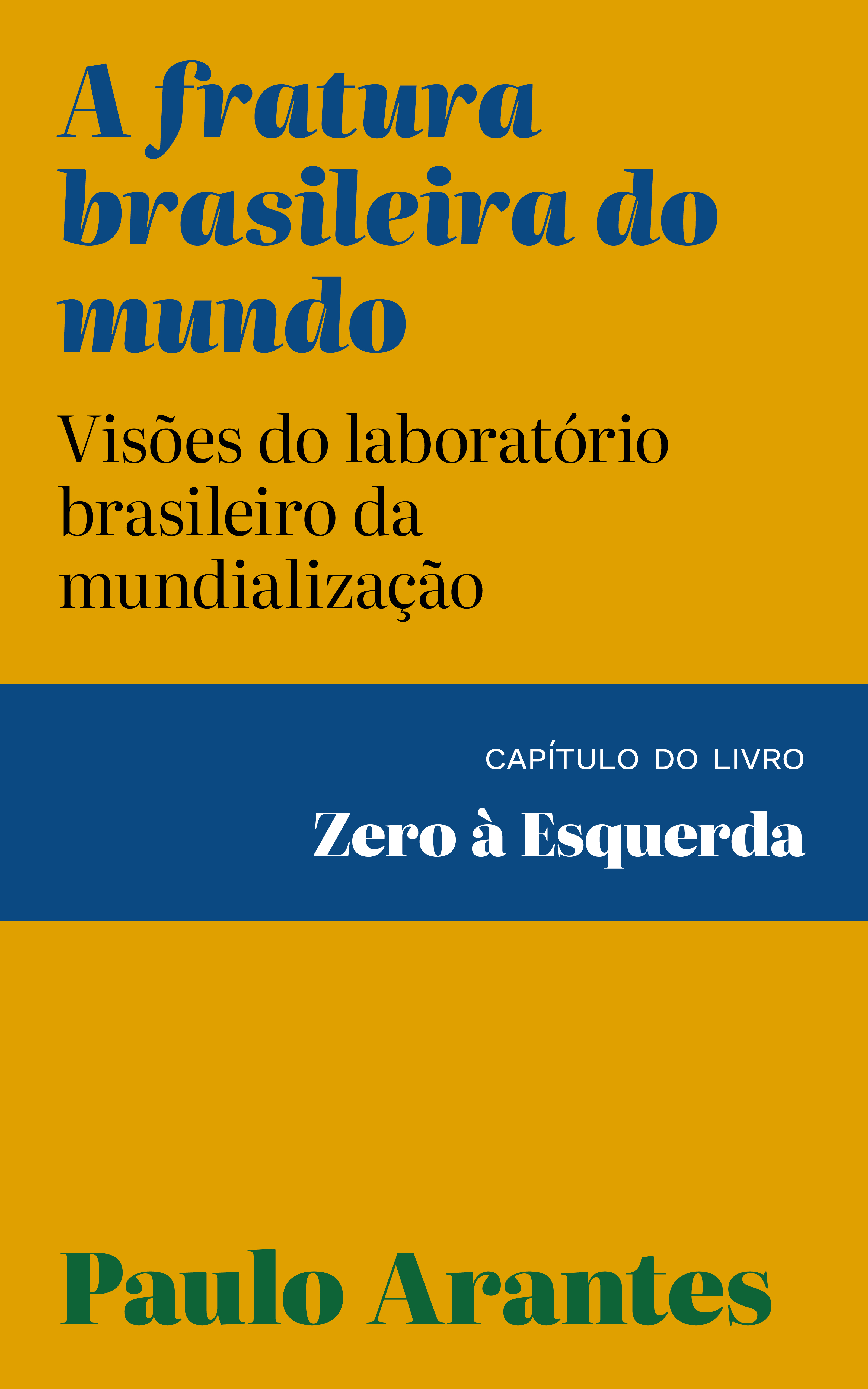The Brazilian Fracture of the World
Observations from the Brazilian laboratory of globalization [2001]
2001
Synopsis
In this essay, Paulo Arantes goes back to the past of the Brazilian future, namely, to a recurring topic among the national intelligentsia, some kind of compensatory mythology formed by the set of historical events that would have promised a great future for Brazil. In other words, it is the assumption that, despite our increasingly explicit miseries, we had created forms of sociability and culture that would eventually be seen as vigorous alternatives to the forms of sociability created by capitalism, while also feeling that we are always behind the pace of the developed world, especially when it comes to the industrial and technological revolutions. To a certain extent, it was like we had an appointment with the future and something to teach the world, despite our extremely cruel conservative modernization. The future, however, proved to be much more problematic. What happened was some kind of cunning of history. When the compensatory mythology of Brazil, “the country of the future”, faded away, the very way capitalism was implemented in Brazil, with its discrepancies between the archaic and the modern, order and disorder, liberalism and slavery, the polarization and dualism of marginalized individuals, always integrated as well as “deterritorialized”—all those aspects that seemed to prevent Brazil from reaching its mythical future—started to be seen as characteristics of first-world developed countries, in times of globalization, through the term “Brazilianization”. What could be our contribution to the world, the “singularity” of our culture and our forms of sociability, which are never fully gentrified, became the “new spirit of capitalism”. Paulo Arantes faces this turnaround in which Brazil becomes the future of the world, but going backwards, as an irreparable social tragedy, a horizontal class struggle (since those on the top have not been affected), with cities structured like fiefdoms, mass incarceration, and encouraged delinquency among the economic elites, who show no sense of guilt as they commit crimes in collusion with the financial market. The borderline between order and disorder, our inability to deal with basic rules of civility, the radical class division: everything has become a global rule. In other words, the “dialectics of roguery” now acts on a global scale. (From Marcos Lacerda’s presentation to the Portuguese edition.)
Originally published in 2001 as a chapter in José Luis Fiori and Carlos Medeiros (org.), Polarização mundial e crescimento. Petrópolis: Vozes, Col. Zero à Esquerda, 2001; then in Paulo Arantes. Zero à Esquerda. São Paulo: Conrad, 2004. And as a book in Portugal: A fratura brasileira do mundo. Lisboa. Cadernos Ultramares, 2019.
Keywords: Brazil, risk society, suburbs, underdevelopment, dependency, colony, dualization, inequality, progress, patriotism, polarization, integration, exclusion, violence, labor, disintegration, resentment, Brazilianization, globalization, political economy, cities, Antonio Candido, Celso Furtado, Caio Prado Junior, Francisco de Oliveira, Roberto Schwarz, Gilberto Freyre, Paulo Emílio Sales Gomes, Sérgio Bianchi, Ermínia Maricato, Magnus Enzensberger, Michael Lind, Ulrich Beck, Christopher Lasch, Richard Rorty, Edward Saïd, Manuel Castells, Robert Castel, United States, France.

Series
Categories
License

This work is licensed under a Creative Commons Attribution-NonCommercial-NoDerivatives 4.0 International License.


